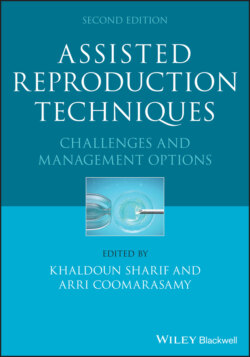Читать книгу Assisted Reproduction Techniques - Группа авторов - Страница 158
Maternal risks in pregnancy
ОглавлениеHypertension in pregnancy is reported to be common in renal transplant recipients affecting 52% to 69% of patients [20]. Pre‐eclampsia or eclampsia is also more common, with a reported incidence of 27% in renal transplant recipients [20,29]. Aspirin reduces the risk of preeclampsia and should be given to all renal transplant recipients [30].
In women with mild kidney disease, pregnancy confers little risk for renal allograft loss. However, for those with risk factors there is a significantly increased risk of irreversible graft loss as a result of the pregnancy [31]. Risk factors for graft loss include; prepregnancy hypertension, elevated prepregnancy creatinine and proteinuria [16].
If proteinuria develops in pregnancy, there is a substantial risk of venous thromboembolism. If antiphospholipid antibodies are also present (as is sometimes the case in lupus) there is a further escalation in thrombotic risk. Lupus, if active, also carries risks in pregnancy such as miscarriage, preeclampsia, thrombosis, FGR, preterm delivery and stillbirth [1].
Due to immunosuppressive therapy, the risks of urinary tract infection in pregnancy are further increased in a transplant patient. If urinary tract infections are not treated promptly and adequately, pyelonephritis may ensue [32]. Renal transplant recipients taking immunosuppressive therapy are also at increased risk of infections such as cytomegalovirus, toxoplasmosis, primary varicella, HIV, primary herpes infection and hepatitis B or C virus [1].
Lastly, anemia is common in pregnant renal transplant recipients and can be treated with iron (intravenous if necessary) and erythropoietin [13].
